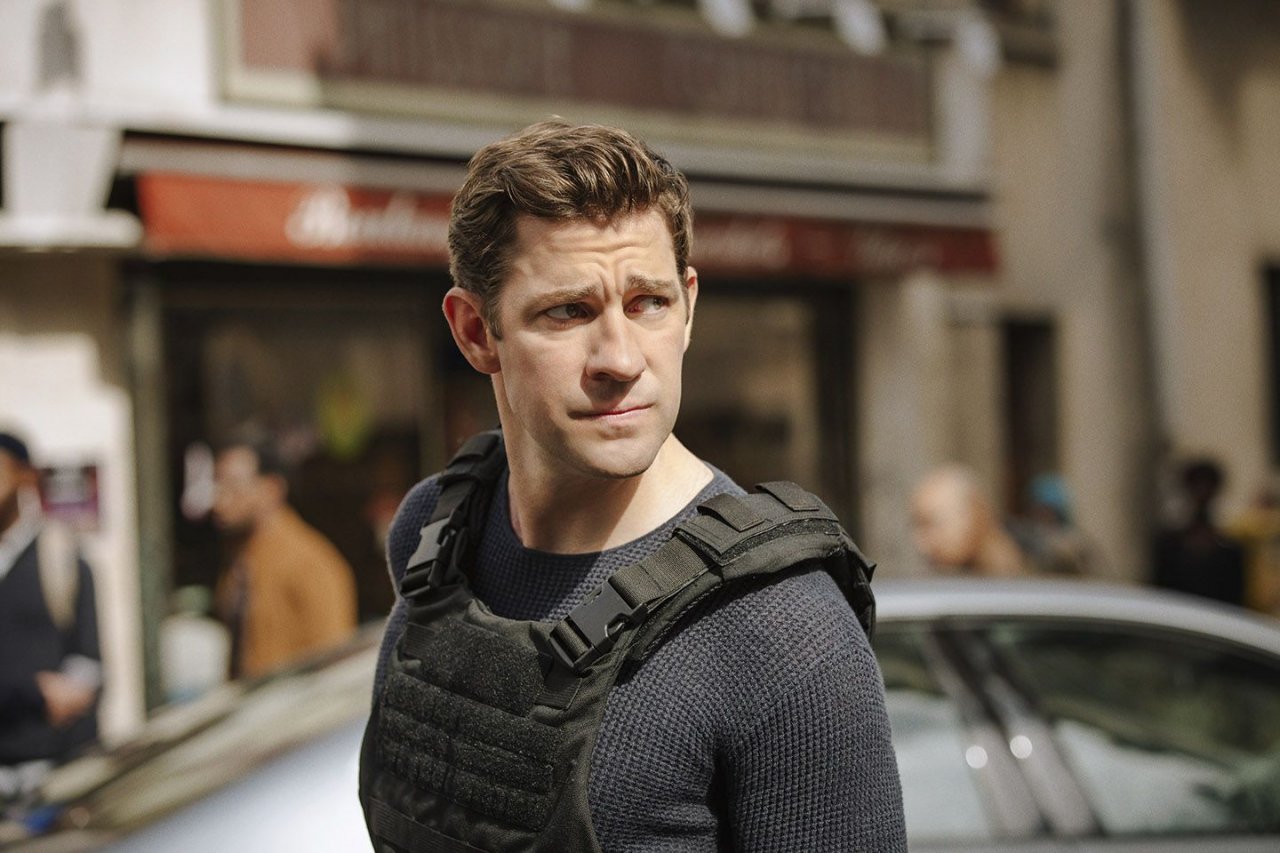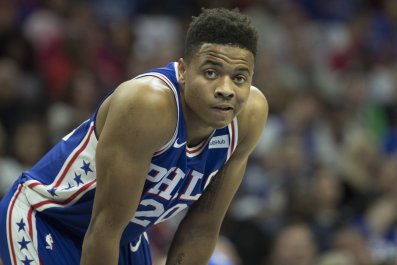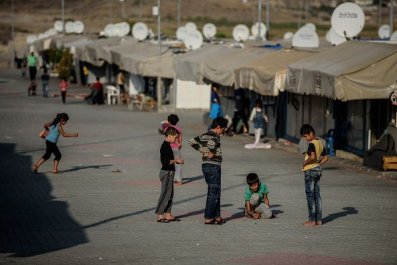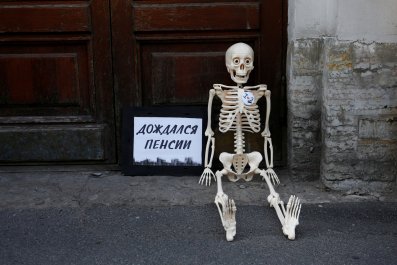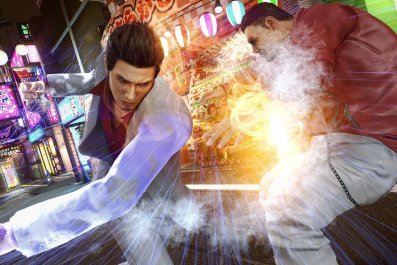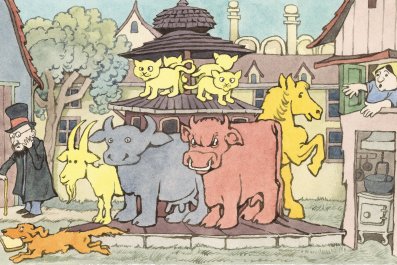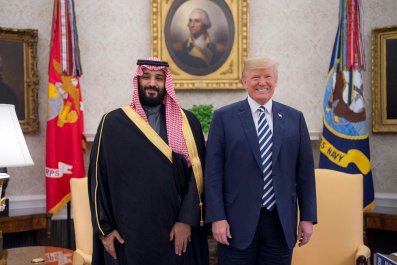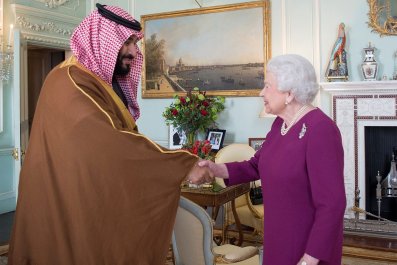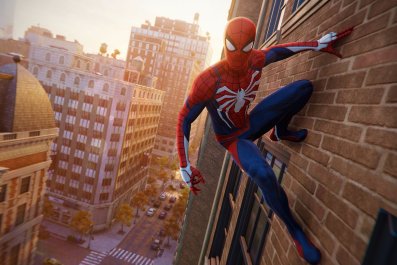It was 1982 when Carlton Cuse moved to Los Angeles with the idea of becoming a screenwriter. "I thought, I'll give it a shot; if it doesn't work out, I'll go to law school."
Television wasn't in his plans. "The gloss of the film business was much higher then," he says. "Of course, now TV has become the home for really great dramatic storytelling. I recently had the president of a studio tell me that they can't find any good writers for movies. They're all working in TV."
Cuse's "graduate school for screenwriting" came from working with Jeffrey Boam, who wrote Lethal Weapon 2 and 3 and Indiana Jones and the Last Crusade. At night, he drafted his own scripts, all of which went nowhere. "I had read about Larry Kasdan's seven unproduced scripts before he an incredible run that included Body Heat, Grand Canyon, The Big Chill, The Empire Strikes Back and Raiders of the Lost Ark," says Cuse. "That inspired me to keep going, to put in the hours to achieve some level of craftsmanship."
A writing break came via a friend, who offered him two scripts for the TV series Crime Story, created by Michael Mann (Miami Vice, Heat). It was the beginning of a career that, 32 years later, includes co-creating Lost—widely considered among the greatest television shows ever.
Cuse's favorite series is The Sopranos: "I'm in awe of it," he says. "David Chase has an unparalleled ability to weave the hilariously funny with the deadly series, to deftly mix the crime genre with family drama. If I need a creative jump start, I watch an episode. It reminds me: This is why you work as hard as you do."
Cuse spoke to Newsweek about his own signature mix—one that frequently combines action, science fiction, horror and the artfully-placed quip—as well as the process it took to get there.
Crime Story, created by Michael Mann, starring Dennis Farina (1986 to 1988 on NBC).
To cross the line from observer to being a participant is a huge moment for any writer. But I wasn't on staff, so my experience was minimal. I handed in my script, got some notes, made changes and didn't see it again until months later. As is typical in TV, much of my scripts were rewritten by those higher up the food chain. I remember the notes as being unvarnished, with no effort to soften the blow. [Laughs.] And by the way, they were probably rightfully harsh; I was pretty green. But getting it straight was a good way to learn.
My most vivid memory of Michael Mann was that he had this bungalow at Universal Studios, and everything in it was dark or black—the furniture, the wall treatments, everything. It looked like it was lit by [cinematographer] Gordon Willis for The Godfather. It was massively intimidating.
The Adventures of Brisco County Jr., co-created by Jeffrey Boam and Cuse. Despite critical acclaim and a cult following, the show was cancelled after one season (1993 to 1994 on Fox).
The Fox Network, which had started in 1986, was introducing its first Friday night block of programming—Brisco into The X-Files: An exciting moment to get my first show on the air. The network wanted a series like Jeffrey's The Last Crusade, and that whole Indiana Jones franchise was based on George Lucas's love of old movie serials. The two most popular genres were science fiction and Westerns, and I thought, What about putting the two things together?
The title popped into my brain on a flight between Albuquerque and Los Angeles, and I scribbled the plot on cocktail napkins: A Harvard-educated bounty hunter, Brisco Jr., tracks down the gang that murdered his father.
The pace of production was insane. We made 27 episodes on a seven-day schedule. Fortunately, we had the gung ho and wonderful Bruce Campbell starring as Brisco. He really got the humor, which I try to put in every script, even when things are darkest, because that's how life is. Robert Altman's MASH is a seminal film for me—a fantastic example of how humor is a critical part of survival. Another favorite, also very much on my mind as I was writing the pilot: Butch Cassidy and the Sundance Kid.
Nash Bridges, created by Cuse and starring Don Johnson (1996 to 2001 on CBS).
CBS had a commitment to Don Johnson to make a TV show, and there had been a bunch of failed attempts to do that. Les Moonves was hired to head up the network, and he asked me to meet with Don, who I was surprised to find was charming and funny. I was a big fan of Miami Vice, which is pretty dark and nihilistic, and I thought, This is great! There's this whole other side to him that TV audiences haven't seen. I pitched Don the idea of a successful cop who's flunked his personal life. His only demand was that it be based in San Francisco. I wrote the pilot, and Les greenlit 14 episodes—his first show as head of CBS.
Then, as now, it's hard to find a leading man for TV who can be a believable action guy, who can be funny and quippy, who's good looking but also dangerous. Don was all those things, and the goal was to write broadly to everything he could do.
Martial Law, created by Cuse while he was working on Nash Bridges. The surprise hit starred Sammo Hung and Arsenio Hall. Cuse left at the end of Season 1, and Hung was unhappy with Season 2 scripts. That, combined with high production costs, led to the show's cancellation (1998 to 2000 on CBS).
A CBS executive was interested in doing a Hong Kong martial arts–style show. Moonves made a deal with Stanley Tong—director of Jackie Chan's three biggest Hong Kong movies—and Tong had a full crew of stunt guys that we brought over. Sammo Hung had been Chan's roommate in the Peking Opera School, so he possessed incredible skills. I pitched a fish-out-of-water story—a cop from Shanghai getting assigned to the L.A. police department. This was pre–Rush Hour, by the way.
In addition to being made over long periods, the Hong Kong movies didn't cost a lot—crews were cheaper and smaller. For network television, where you have to make a show every eight days, the scheduling and budget was really challenging. It was particularly tough for Sammo, who had to be in acting scenes, then take full days to choreograph fight scenes. We were trying to do something a little different, including having an [East Asian] leading a television show—he was the only one at the time.
Lost, created by Damon Lindelof and J.J. Abrams. Lindelof's first writing gig was on Nash Bridges and he called Cuse for advice, then hired him to co-run the show for its six seasons (2004 to 2010 on ABC).
One reason Lost was successful in the way it was, and why the show entered the zeitgeist, was because it came into existence about the same time as social media. Damon and I intentionally wrote the show in an enigmatic way, and people wanted to discuss it, and here was this new medium that was letting them do so in a singular way.
An early site, the Fuselage, which the show partially funded, became a gathering place for fans. At the end of Season 1, they organized a get-together at a hotel in Hollywood. So many people showed up to meet the writers, from all over the world, and that was totally unexpected—that Damon and I would be the face of the show. Until Lost, television was a medium in which the creators did their work in anonymity. You're in the writers' room desperately trying to break story; you're editing shows; you're removed from the world. It's not particularly glamorous, and it's a lot of hard work. So, suddenly, to step out of our cave and see these people—that was a "holy shit" moment.
Damon and I started every day in our office eating Disney commissary food out of cardboard containers, just talking. Some days, those conversations were about the specifics of what we were doing that day. Other days, they were broader creative or larger process conversations. A lot of shows fall into a rigidity about how to tell their stories, and our feeling was that we should use the form of storytelling that best suited whatever story we wanted to tell. And we violated a lot of rules to do that: We had 16 series regulars, and the presumption on network shows was you couldn't have more than six to eight. We had characters that did really bad things in their past, like murder people; that was a definite network no-no in 2004. We told the story as this sprawling, highly serialized narrative in an era of close-ended episodic storytelling. We had a very diverse cast. And we did this intentionally mystifying storytelling, driven by Damon's and my love of European cinema—directors like [Michelangelo] Antonioni and [Federico] Fellini, who made movies that were cryptic but also deeply engaging. It was in part a response to the traditional network paradigm of "explain this—tell us exactly how the audience is meant to feel." As we got pounded with those kinds of notes, our subversive feeling was, Well, what if we don't do that?
Bates Motel, co-created by Cuse and Kerry Ehrin (2013 to 2017 A&E). In 2015, Cuse simultaneously ran one season of The Returned, also on A&E.
I had a meeting with two Universal TV execs, and they said, "We've sold the idea of doing a Psycho reboot to A&E." And I said, "Well, what's the show?" And they said, "Exactly!" [Laughs.] I told them I preferred working with a partner—my relationship with Damon was really the most important part of my Lost experience. Universal introduced me to Kerry, who was on contract, and we immediately clicked.
It was important to us to separate the show from the movie, so we decided to tell the story as a contemporary prequel. What was interesting to me was that Norma Bates is one of the most important characters in cinema but we know nothing about her. She's dead. We imagine her as this horrible shrew who berated Norman into being crazy, but what if she was a loving—almost smothering in her love—mother whose son has a flaw in his DNA. Can she keep him from becoming the guy he's destined to become? We saw it as a romantic tragedy.
The show was a perfect experience. Kerry and I always imagined it as being five seasons and 50 episodes, and it was. We had Vera Farmiga in mind as Norma when we were writing the pilot, and she agreed to do it. And I can't imagine anyone better than Freddie Highmore to play Norman.
The Strain. Based on three novels by Guillermo del Toro and Chuck Hogan, Cuse served as executive producer during its four seasons (2014 to 2017 on FX).
I worked hand-in-hand with Guillermo to turn it into a series, and he directed the pilot. The combined vision of everyone involved was to make it look and feel like a graphic horror novel—highly stylized, gory, grimly funny. Collaboration is what I love most about working in television; the goal for me always is to take great ideas from everyone and put them together in a way that makes the show, hopefully, greater than the sum of its parts. Orchestrating a level of alchemy between the creative participants is as important as showrunning.
Colony, co-created by Cuse and Ryan Condal, and starring Lost alum Josh Holloway and Sarah Wayne Callies (2015 to 2018 on USA).
I'd worked with Ryan on a pilot that never happened, but we really connected. We thought, Wouldn't it be cool to do an alien invasion show where we never saw the aliens? It was about the idea of colonization, and almost every country in the world has been a colonizer or colonized. We wanted to do that metaphorically with science fiction. I wish there had been more humor, but it was hard to insert into such a bleak narrative. Of course, we had no idea that the world would change, and a lot of things that happened factually were stranger than the fiction in our story.
Jack Ryan, created by Cuse and Graham Roland, starring John Krasinski, Wendell Pierce and Ali Suliman (Amazon).
When I was writing the show with Graham, I said, "Here's the challenge: If we don't get one of a couple of guys to play Jack, we're dead in the water; there's no point in making it. The show needs a believable action star."
I like to write with somebody in mind. I love George Clooney, and though I've never worked with him, I've written a lot of great words that should have come out of his mouth. [Laughs.] As we were developing Jack Ryan, John Krasinski popped up as a great prototype. We had seen him in the film 13 Hours, where he'd gotten himself super fit and was credible in a dramatic role.
Our show is stolen from the DNA of Tom Clancy's novels, but it's not literally adapted from any of the books. The moment that seemed the most interesting to me was when the character goes from being an analyst in a cubicle farm in the CIA to being in the field for the first time. Oh, well, here's John, who's well known for being in a cubicle on the sitcom The Office. What if the audience gets to see the actor's talent unfold in a new way?
We were told John wouldn't be interested; he was trying to establish himself as a leading man in dramatic films after doing comedy. Undaunted, we sent him four really detailed outlines—40 pages each, single-spaced—that ended up becoming the first episodes of the show. He loved it and said he was in, which was utterly shocking!
Graham and I have been developing Jack Ryan for three and a half years, with a total of 10 episodes in the first season. That makes Brisco's development in less than a year, and a production pace of an episode every seven days seem even crazier. Looking back, giving a novice the job of showrunner on that series was like putting a doctor in charge of a trauma hospital the day he graduates from medical school.



